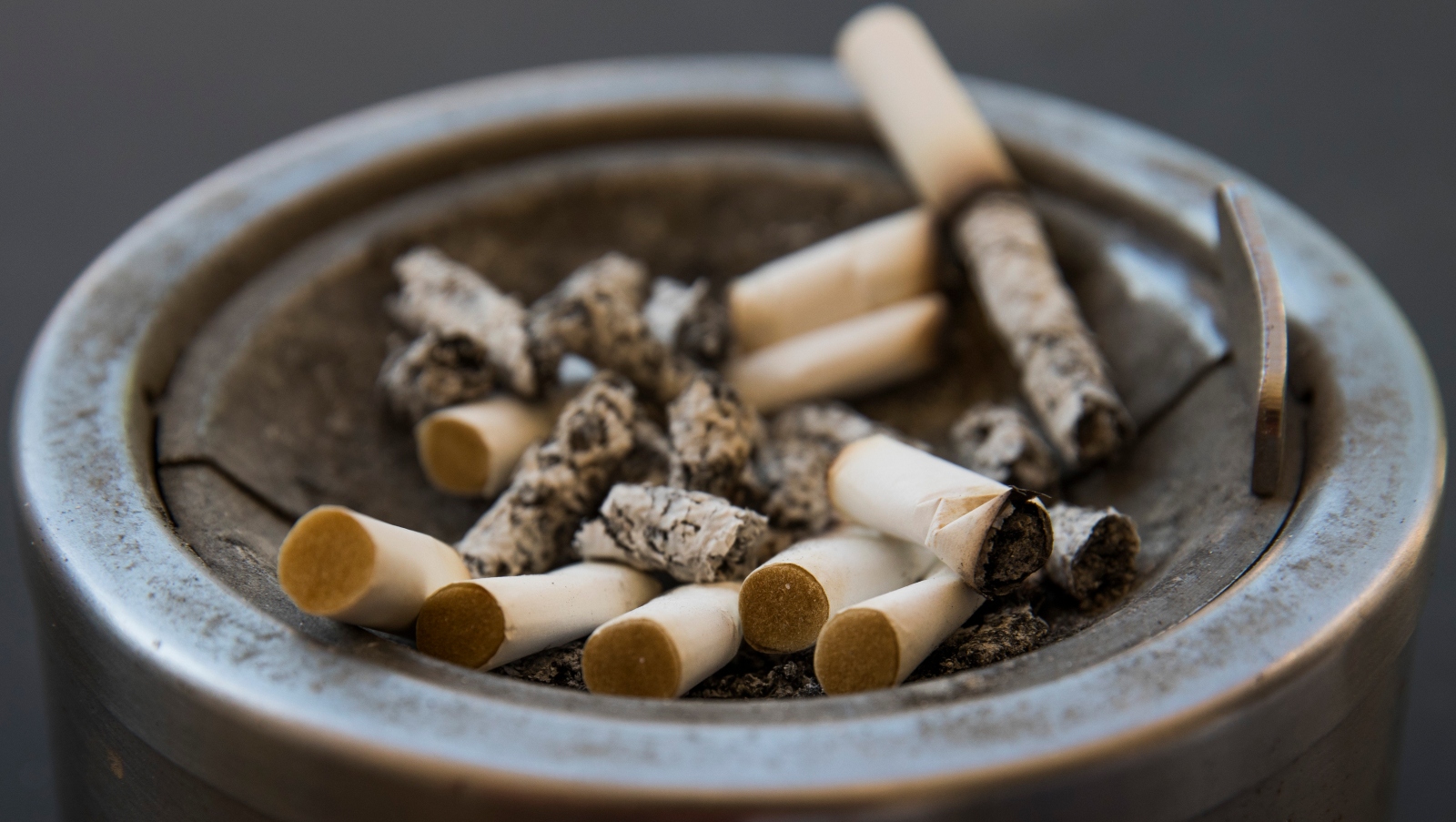Cigarette smoking, which is practised by over a billion people worldwide, is a leading cause of disease, accounting for more than six million deaths each year. Many people do not quit smoking, despite expressing a desire to do so, because they are concerned about the significant weight gain that often results from quitting. The reason for this weight gain is unknown, as studies show that most people do not eat more after quitting smoking. Weizmann Institute of Science researchers report today in Nature that obesity developing after “smoking cessation” in mice may be driven by weight-modulating compounds released by their gut microbes.
“Our findings demonstrate how the host and microbiome work together to regulate weight and metabolism,” says Prof. Eran Elinav of Weizmann’s Immunology Department, who led the study. “The compounds we discovered could lead to new treatments that help people avoid gaining weight when quitting smoking.” Furthermore, these compounds may be further developed into therapies to combat obesity in nonsmokers.”
This project was led by Elinav’s lab’s Leviel Fluhr, Uria Mor, and Dr. Hagit Shapiro, along with other lab members and Weizmann scientists.
Despite eating a high-fat, high-sugar diet, mice exposed to cigarette smoke on a regular basis did not gain weight, according to the researchers. When the mice were no longer exposed to smoke, they quickly gained weight, as is common when people stop smoking. However, when the mice were given broad-spectrum antibiotics that depleted their microbiome, they gained much less weight after “smoking cessation,” remaining slim for months regardless of diet. Tobacco-related compounds, such as nicotine, clearly penetrated the gut of “smoking” mice from the bloodstream, altering the gut’s bacterial composition and, as a result, the body’s metabolism.
To confirm that gut microbes were indeed major regulators of weight gain in “smoking cessation” mice, the researchers collected microbiomes from “smoking” or “smoking cessation” mice at various timepoints and transferred them into germ-free mice that had never been exposed to cigarette smoke. The recipient mice developed microbial imbalances similar to those seen in “smoking” mice and gained weight gradually, a phenomenon that was most pronounced in mice transplanted with microbiomes collected during the smoking cessation period. When the donor “smoking” mice were given antibiotics before the transplants, they gained significantly less weight.

The researchers then characterised the thousands of potentially bioactive metabolites produced or altered by the microbiome in response to cigarette smoke exposure in the hosts. They discovered two small molecules that could explain the metabolic consequences of quitting smoking.
One of them was dimethylglycine, or DMG, a metabolite produced by the gut microbiome and the liver from the dietary nutrient choline. DMG production was increased during active cigarette smoke exposure, but it was significantly reduced when the gut microbiome of “smoking” mice was depleted by antibiotics.
When these antibiotic-treated mice (which are depleted of DMG) were given a DMG supplement, their ability to gain weight returned as soon as they were no longer exposed to cigarette smoke, presumably because the compound increased “energy harvest,” or the amount of food-derived energy that the body takes up. When the mice were fed a choline-deficient diet, which lacked the precursors needed for DMG production, they failed to gain weight after “smoking cessation.”
Finally, the researchers examined the microbiomes of 96 smokers and nonsmokers. They discovered significant changes in smokers’ microbiomes, as well as microbial metabolite changes similar to those found in the mouse “smokers,” including increased levels of DMG and its intermediate products. Further research will be required to determine whether these or other metabolites produced by the smoking-influenced microbiome contribute to weight gain in humans following smoking cessation.
“The profound impact that our microbial tenants have on our body never ceases to astound us,” says Elinav. “Our findings shed new light on how the microbiome interacts with the human body to regulate our weight and metabolism in ways that could be therapeutically exploited.”
Dr. Aleksandra A. Kolodziejczyk of the Elinav lab, Dr. Mally Dori-Bachash, Dr. Avner Leshem, Dr. Jotham Suez, Dr. Niv Zmora, Dr. Rafael Valdés-Mas, Dr. Denise Kviatcovsky, Shlomik Itav, Yotam Cohen, Claudia Moresi, Shahar Molina, Niv Ayalon, Shanni Hornstein, Ho
_______
Smoking Cessation | Don’t forget to follow us on Twitter @njtimesofficial. To get the latest updates








